Supplementing your dog's diet. Part 2: Vitamins
December 08, 2023 | By David Jackson
Also see Part 1: Supplementing oils
Vitamins are essential for your dog's normal growth and body function. They cannot be made by the dog's body so they have to be consumed through diet. Too little of any one and it doesn't take long for problems, called deficiency symptoms, to appear. On the other hand, too much of some vitamins can also be harmful. As with all things nutrition, the key is balance.
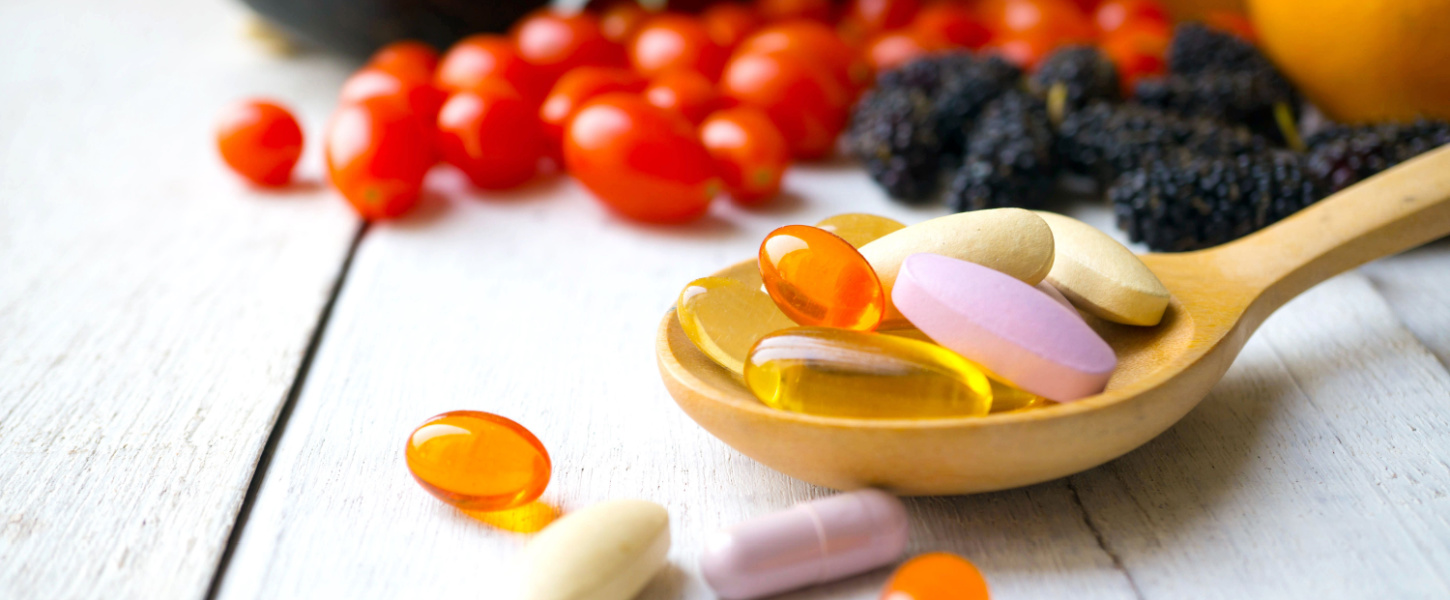
The good news is that, for most dogs, any certified complete food (which accounts for the vast majority of dog foods out there) will contain the full spectrum of vitamins at the right levels to keep them fit and healthy throughout their lives. There are, however, occasions when adding a bit more of one or more vitamins to your dog's diet can bring significant benefits.
In this article, we'll take a closer look at the roles vitamins play in your dog's health and under what circumstances you may or may not want to consider supplementing them.
What Vitamins Do Dogs Need?
For the most part, the vitamins dogs need from their diet are the same as the ones needed by humans. We've all heard of them and many of us take extra to bolster our own diets day to day, either individually or as part of a multi-vitamin. Remember, though, that while dogs may need most of the same vitamins we do, the amounts they require are not the same so be sure to follow dosage instructions for dogs and not to give your dog multi-vitamins intended for human use.

Notice that Vitamin C is not on the list. This is because dog's bodies can actually synthesise their own vitamin C. There are, however, still some cases where vitamin C supplementation can be recommended so we will also take a look at those cases below.
Which Dogs Need Vitamin Supplements?

As mentioned above, commercial complete dog foods should contain the right balance of vitamins so unless your dog is sick or showing any signs of deficiency, you probably don't need to worry about topping up their vitamin levels.
There are, however, times when vitamin supplementation can really help tackle specific complaints or boost your dog's health in general.
The first group of dogs where vitamin supplementation might be worth considering is dogs with compromised digestion or nutrient absorption; this may be because of digestive upsets, medications that interfere with normal digestive function, or even some genetic diseases. In these cases, providing additional vitamins, ideally in an easily absorbable form, can pay dividends.
Vitamin requirements also change between different life stages - puppies, for example, need more vitamin A to support their growth than adult dogs. Older dogs might also benefit from higher levels of some vitamins to help slow down the onset of age-related illnesses.
Lastly, vets sometimes recommend targeted vitamin supplementation to help tackle certain health issues.
We'll look at the most common use cases for each vitamin below.

Importantly, dog owners should never supplement vitamins without first consulting with their vet as supplementing when not needed can sometimes do more harm than good.
If you do decide to top up your dog's intake of one or more vitamins, you can do so either with a dedicated supplement - usually a powder, pill, liquid or oil, or through adding specific foods that are rich in the required vitamin to the diet - we'll list some options below.
Vitamin A
Vitamin A is a fat-soluble vitamin which plays a number of essential roles in your dog's body:
- Supporting Vision
- Bone Growth
- Reproduction
- Cellular Differentiation
- Immune Response
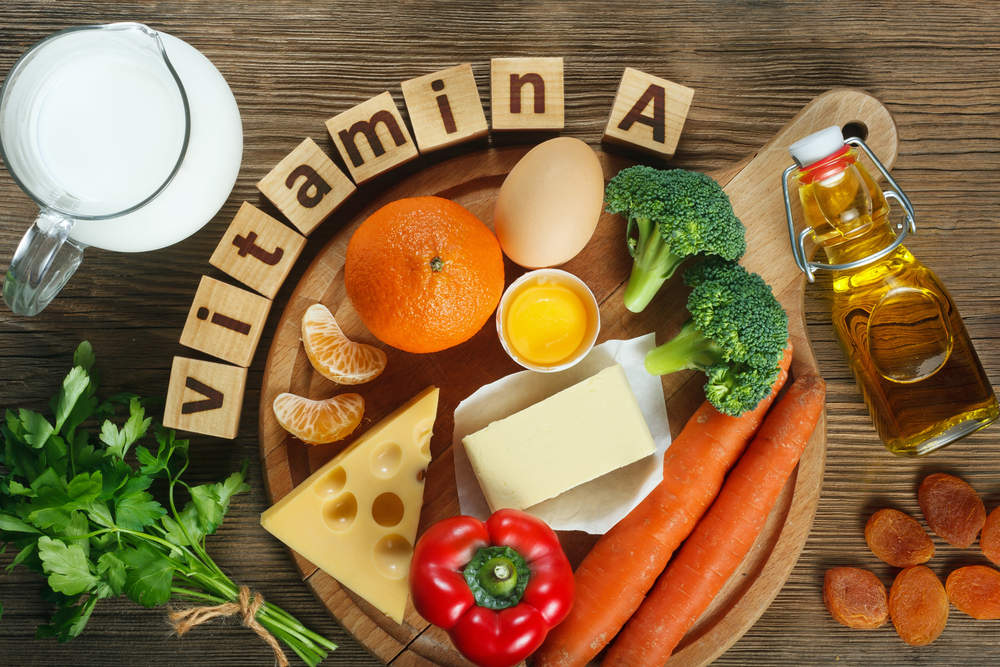
It is found in a range of food including
[1]
When to Supplement Vitamin A
- Vitamin A supplementation is most often recommended for:
- Puppies, especially when they are not on a puppy-specific complete food
- Older dogs to promote eye health and rescue onset of night-blindness
- To boost immunity during some infections
- To help promote healthy skin and coat
- In all of the above cases, consult your vet before supplementing
How Much Vitamin A to Supplement
Puppies need to receive roughly 10,000 IU/kg daily.[2] As he or she gets older and becomes an adult this halves to roughly 3,333-5,000 IU/kg per day.[3] Bear in mind, though, that your dog's diet will already provide most if not all of this amount (it should say how much is in the food on the label) so be sure to offset the dosage accordingly.
Vitamin B
Vitamin B is actually a group of eight different nutrients, each one with its own set of vital roles in the dog's body.
- B1 Thiamine: Supports digestion, brain function and the immune system
- B2 Riboflavin: Reduces stress, important in eye health and maintaining muscle strength
- B3 Niacin: Helps with digestion of fats, promotes brain function
- B5 Pantothenic acid: Necessary in the production of body proteins and fatty acids
- B6 Pyridoxine: Plays an important role in mineral balance and red blood cell formation
- B7 Biotin: Important for healthy skin and coat
- B9 Folic acid: Essential for red blood cell and DNA production. Very important during pregnancy.
- B12 Cobalamin: Necessary for healthy nerve development and function
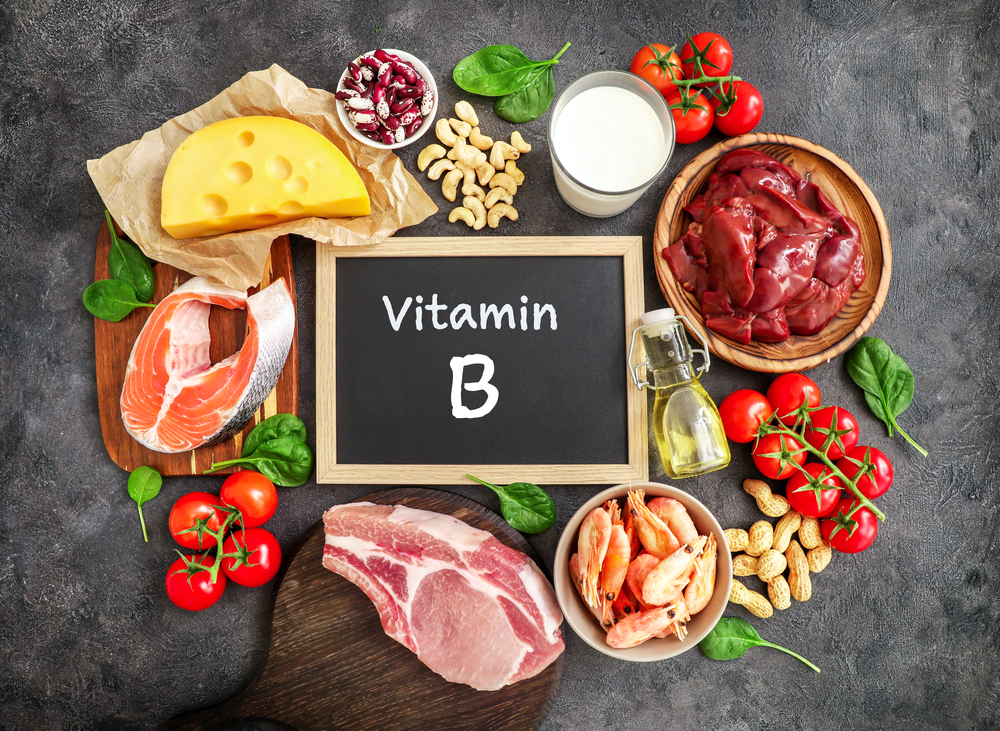
B-Vitamins are found in all sorts of foods:
When to Supplement B Vitamins
Additional B vitamins are often suggested for:
- Skin Problems
- Muscle Weakness
- Poor Eyesight
- Folic acid supplementation is often recommended during pregnancy.
- B-Vitamins are also sensitive to light and can easily denature so some pet owners choose to supplement them as a safeguard against any loss from their commercial pet food.
How Much B Vitamin to Supplement
AAFCO recommend the following minimum levels for a healthy 14kg dog:

- Thiamine: 0.56 mg/1,000 calories
- Riboflavin: 1.3 mg/1,000 calories
- Niacin: 4 mg/1,000 calories
- Folic acid: 68 micrograms/1,000 calories
- Pantothenic acid: 4 mg/1,000 calories
- Biotin: 7 mg/1,000 calories
- Pyridoxine: 0.4 mg/1,000 calories
- Cobalamin: 9 micrograms/ 1,000 calories
Again, remember that your dog's diet will already provide a lot of B vitamins so be sure to offset the above dosages accordingly.
Vitamin C
Unlike humans, dogs can synthesise their own vitamin C. Each kilo of body weight produces around 40 milligrams which is usually enough to sustain health without supplementation. For that reason, there are generally only a few situations where additional vitamin C is suggested.
Vitamin C Performs Several Key Functions in Dogs:
- It facilitates the growth of robust skin and bones.
- It aids in the synthesis of hormones.
- It provides defence against cancer and other illnesses.
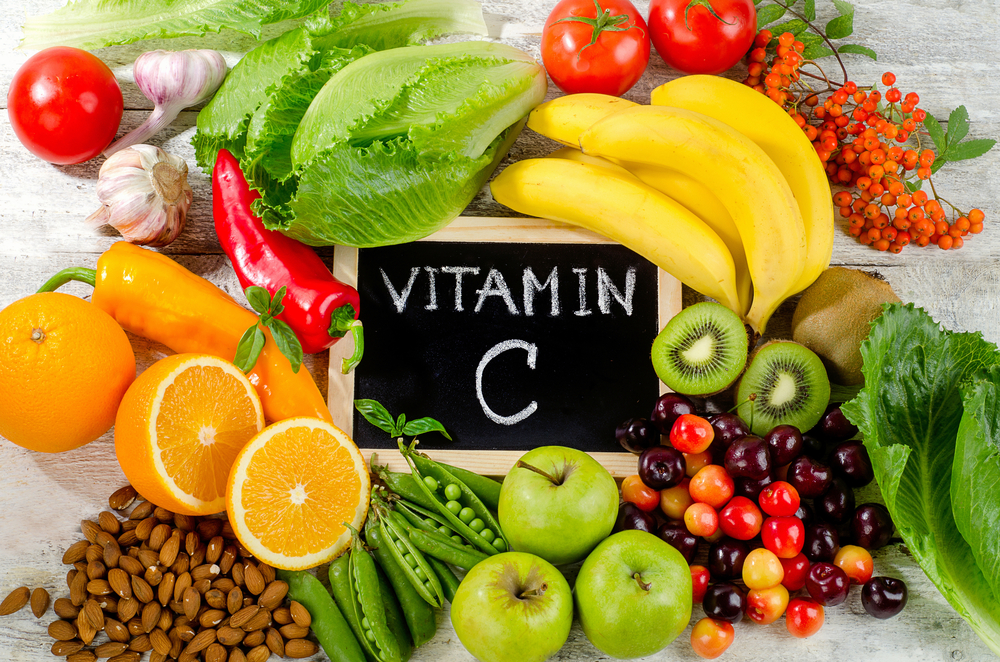
While complete dog foods should contain all the vitamin C your dog needs, there are plenty of dog-appropriate foods that you could add to the diet to boost their vitamin C intake:
- Veg like broccoli, cauliflower, Carrots and kale
- Fruits like apples and berries
When to Supplement Vitamin C
Additional vitamin C is sometimes recommended for:
- Pregnant dogs as pregnancy can inhibit the body's normal vitamin C production
- Dogs with joint problems like arthritis or hip dysplasia
- Dogs with certain types of urinary crystals or stones (consult your vet)
- Dogs suffering from environmental allergies
How Much Vitamin C to Supplement
If your vet recommends vitamin C supplementation for your dog, they will be able to help you calculate the correct dose. In older dogs with arthritis dosages can be as high as 2,000 milligrams or even higher if it is necessary.
Vitamin D
Unlike us humans, dogs cannot synthesise their own vitamin D meaning they have to get their entire vitamin D requirement from the diet alone.
Vitamin D serves several vital roles in the canine body, primarily centered on maintaining healthy bone, muscle and nerve function.
As with all vitamins, any complete food should contain enough vitamin D to meet your dogs daily requirements but if you do want to increase your dog's intake, there are a number of vitamin D-rich foods that could be added to your dog's diet:
All of the above examples contain vitamin D3 which is twice as effective as plant derived vitamin D2.
When to Supplement Vitamin D
Some groups of dogs can benefit from elevated levels of vitamin D but be sure to consult your vet before jumping as too much vitamin D can also be harmful to dogs.
Vitamin D supplementation may be recommended if your dog:
- Has a history of bone or joint problems
- Is recovering from injury
- Has an increased risk of heart problems (some breeds and some breeding lines are more predisposed)
- To boost the Immune system
How Much Vitamin D to Supplement
Dogs need between 500 and 5000 IU of vitamin D per kg of body weight per day.[4] Complete foods usually contain sufficient but if you are looking to boost your dog's dosage, be sure to factor the vitamin D in their complete food into your calculations.
Vitamin E
Vitamin E (sometimes listed as 'tocopherols') is a fat-soluble compound that is essential for a multitude of functions in the body including promoting a strong immune system, healthy gut and skin and supporting eye function. It's often added to pet foods not only because dogs need it but because it is a strong antioxidant which slows down spoilage.
Vitamin E can be found in :
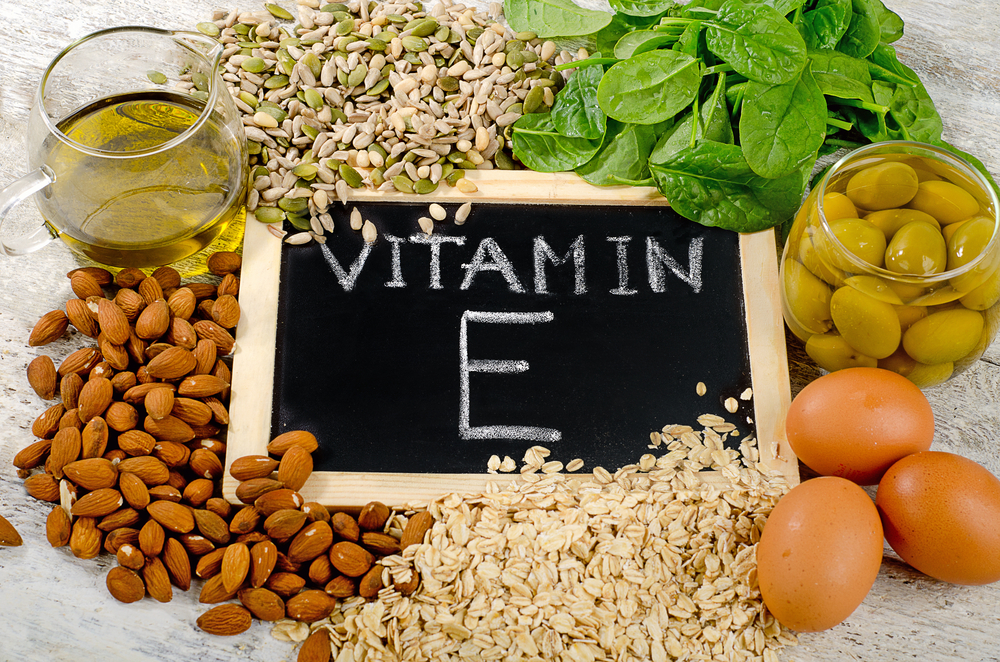
When to Supplement Vitamin E
If your dog is on a complete food, that should provide all the vitamin E your dog needs. Nevertheless, there are also some cases when a little extra might be beneficial:
- Dogs that are at higher risk of developing cancer (due to it's antioxidant properties)
- Certain skin problems [5]
- Immune system boost
- Following joint surgery or some types of poisoning[6]
Note, however, that too much vitamin E can cause toxicity so make sure you talk it over with your vet first.
How Much Vitamin E to Supplement
According to AAFCO, adult dogs should be consuming no less than 50 IU of vitamin E per day. Complete dog foods should certainly meet that requirement so if you do add more, make sure you offset for any present in the diet.
Vitamin K
Vitamin K is another fat-soluble nutrient that is essential for good health. Its primary role is in the production of various proteins needed for blood clotting and the building of bones.
While vitamin K is present in many foods, gut bacteria are also able to synthesise vitamin K and in dogs they generally provide enough to meet all of the dogs requirements.
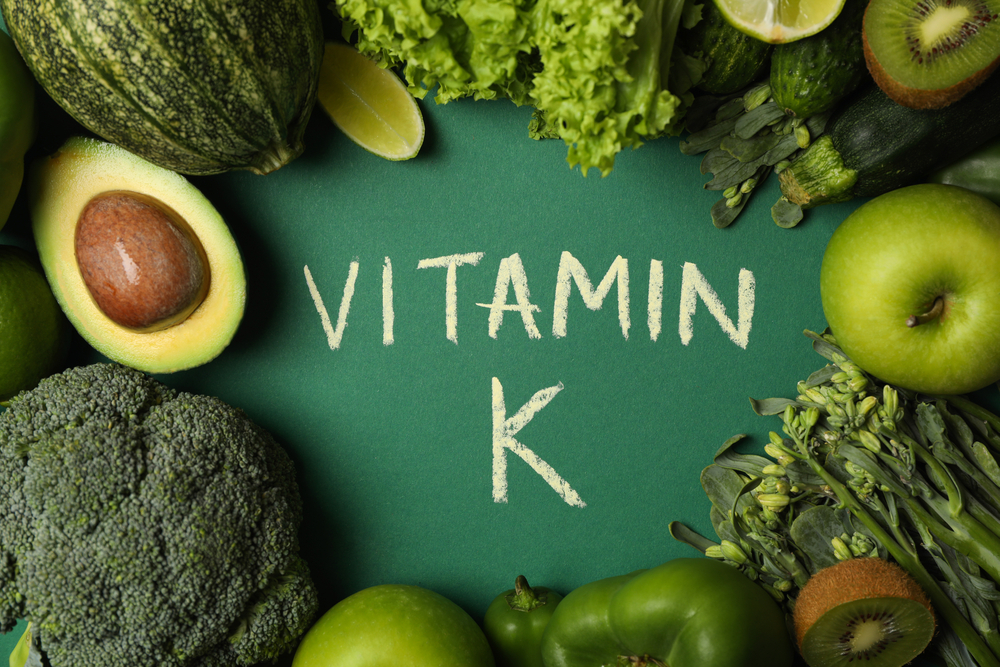
Food sources of vitamin K include:
When to Supplement Vitamin K
As mentioned above, most dogs receive sufficient vitamin K through their diet and from their gut flora making vitamin K deficiency quite rare. Nevertheless, there are still a number of situations when your vet may recommend supplementing:
- Ingestion of rat poison can quickly deplete the body's vitamin K levels making supplementation necessary
- Any condition that disrupts the gut flora (intestinal disease, antibiotic treatments) can cause vitamin K levels to drop and may necessitate supplementation
- In some cases, vets might administer vitamin K before surgery to ensure normal blood clotting
How Much Vitamin K to Supplement
Since vitamin K is most often given in response to the specific medical conditions described above, it's important to work with your vet to calculate the correct dosage for your individual dog.
Multivitamins
Multivitamins are enormously popular amongst people looking to boost their daily intake of the full spectrum of vitamins in one convenient tablet. But do they also work for dogs? Well, while there are plenty of multivitamin tablets and powders available for dogs, it's very important to realise that almost all complete dog foods already have a multivitamin supplement incorporated into them so if your dog is on a complete food, an additional multivitamin supplement may push up their intake of some of the vitamins too high.
If, on the other hand, you are home preparing food for your dog, a good quality multivitamin can certainly help to shore up against any potential deficiencies but it should not be used as an alternative to a well-planned, balanced diet. In either case, we would recommend consulting your vet first.
Note that human multivitamins are not appropriately balanced for a dog's requirements and should not be given to dogs.
Whole-food Multivitamins
If you have read this far - first off well done! and second, you may have noticed the same foods coming up again and again as rich sources for the various vitamins dogs need - particularly Liver and leafy green Vegetables. Combined, these two foods provide every single vitamin on the list, in a whole, bio-appropriate format making them the ideal foods to add to your dogs diet in order to boost vitamin levels.
Leafy green veg should be lightly cooked and allowed to cool before serving and remember that Liver is extremely nutrient dense so a little goes a long way. We would recommend giving a small morsel or Liver as a treat or as part of a meal once or twice a week. Liver should make up no more than 5% of your dog's diet.
Final thoughts
Dogs need vitamins. Complete dog foods should provide enough of them but for some dogs, a little extra can bring significant benefits. Take care, though, as too much of certain vitamins can be detrimental. Your vet will be able to help pinpoint which vitamin supplements might help your dog and in what quantities.
If you supplement your dog's diet with additional vitamins or anything else, please let us what changes you have seen in your dog's health as a result down below.
References
Links we have used in this article:
- Vitamin A rich foods: Link
- Safety evaluation of Vitamin A in growing dogs: Link
- Vitamin A Deficiency in dogs: Link
- Current Knowledge of Vitamin D in dogs: Link
- Vitamin E supplementation in dogs: Link
- Extended Effects of Vitamin E supplementation in dogs: Link
|
gemma •9 months ago
In my post about synthetic vitamins I meant to list 2 of the most informative sites, which are: https://www.petplusvet.com/dangers-of-man-made-vitamins https://www.caninenutritionist.co.uk/dog-nutrition/synthetic-dog-food-supplements/gemma •9 months ago
I totally disagree with "The good news is that, for most dogs, any certified complete food (which accounts for the vast majority of dog foods out there) will contain the full spectrum of vitamins at the right levels to keep them fit and healthy throughout their lives". For me this is very bad news and I only give my dog foods containing top quality ingredients to provide the requisite vitamins and which don't contain these pre-mixed synthetic vitamins and minerals, usually made in China. I am convinced that, unlike natural vitamins, synthetics, particularly the fat soluble ones, build up in dogs' livers and eventually become toxic. There is plenty of online info from reliable sources on the dangers, so no need for me to explain further here, but I would urge everyone to at least read about it even if you don't agree. If supplementation is required, there are natural vitamins for dogs available and I would strongly advise buying these instead of synthetics. Luckily - for me - whilst still scarce, there are more 100% natural foods available now than a few years ago. Most of these will be described as complementary rather than complete to comply with legislation, but bear in mind that even the crappiest extruded kibble brands such as Bakers are able to claim to be "complete and balanced" partly because of the inclusion of synthetics and there's no way these foods will (copying from the above) "keep them fit and healthy throughout their lives"!TraceyF gemma
•4 months ago
gemma
•4 months ago
Hi Gemma, I am feeding my dog a lightly cooked homemade diet including a wide range of proteins, vegetables, etc. I am looking for a good brand of whole food complete vitamin and mineral supplement to fill in any gaps. Are you able to let me know of any brands that might be suitable? Many thanks in advance for your reply.Foodbug •one year ago
Surely a food labelled ‘complete’ cannot provide sufficient nutrition when it is evaluated as very low on AADF? Eg.Sainsburys ‘complete nutrition’ dry is only 21%??